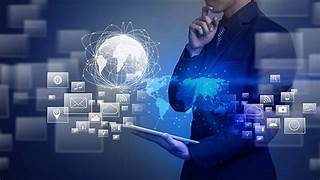The Role and Importance of Information Technology (I.T.) in Today’s World
July 17, 2024 2024-07-17 15:15
The Role and Importance of Information Technology (I.T.) in Today’s World
Information Technology (I.T.) has become a vital component of modern society, transforming the way we live, work, and interact. From basic communication to complex data management, I.T. plays a crucial role in various aspects of our daily lives. This article explores the significance of I.T., its key areas, and its impact on different sectors.
Understanding Information Technology
Information Technology encompasses the use of computers, software, networks, and other electronic devices to store, process, and transmit information. It involves a wide range of technologies and applications, including:
- Hardware: Physical devices like computers, servers, and networking equipment.
- Software: Programs and applications that perform specific tasks on hardware.
- Networking: Systems and protocols that connect hardware and software, enabling communication and data exchange.
- Data Management: Techniques and tools for storing, retrieving, and analyzing data.
Key Areas of I.T.
- Communication
- I.T. has revolutionized communication through emails, instant messaging, video conferencing, and social media platforms. These technologies facilitate real-time interaction and collaboration, breaking down geographical barriers.
- Data Management
- The ability to collect, store, and analyze vast amounts of data is one of the most significant contributions of I.T. Data management tools and systems help organizations make informed decisions, streamline operations, and enhance customer experiences.
- Cybersecurity
- With the increasing reliance on digital technologies, protecting sensitive information from cyber threats has become paramount. Cybersecurity involves implementing measures to safeguard data, networks, and systems from unauthorized access, breaches, and attacks.
- Software Development
- The development of software applications tailored to specific needs drives innovation and efficiency. From mobile apps to enterprise software, I.T. professionals design, code, and maintain applications that enhance productivity and user experience.
- Cloud Computing
- Cloud computing allows organizations to store and access data and applications over the internet, offering scalability, flexibility, and cost savings. It supports remote work, disaster recovery, and on-demand resource allocation.
Impact of I.T. on Various Sectors
- Business
- I.T. has transformed the business landscape by automating processes, enabling e-commerce, and facilitating global trade. Businesses leverage I.T. to improve customer service, optimize supply chains, and gain a competitive edge.
- Healthcare
- In healthcare, I.T. plays a crucial role in patient management, medical research, and treatment delivery. Electronic health records (EHRs), telemedicine, and health information systems enhance the quality of care and streamline administrative tasks.
- Education
- Educational institutions utilize I.T. to provide online learning platforms, digital resources, and interactive tools. I.T. supports remote education, personalized learning, and access to a wealth of information, making education more accessible and engaging.
- Government
- Governments use I.T. to improve public services, enhance transparency, and engage with citizens. E-government initiatives, online portals, and data analytics help streamline processes, reduce bureaucracy, and promote efficient governance.
- Finance
- The finance industry relies heavily on I.T. for secure transactions, risk management, and data analysis. Financial institutions use I.T. to offer online banking, mobile payments, and investment services, providing convenience and security to customers.
Future Trends in I.T.
- Artificial Intelligence (AI) and Machine Learning
- AI and machine learning are set to revolutionize various industries by enabling advanced data analysis, automation, and personalized services. These technologies can improve decision-making, enhance customer experiences, and drive innovation.
- Internet of Things (IoT)
- IoT connects everyday devices to the internet, allowing them to collect and exchange data. This connectivity can lead to smarter homes, efficient industrial operations, and improved healthcare monitoring.
- 5G Technology
- The rollout of 5G networks promises faster internet speeds, lower latency, and enhanced connectivity. This technology will support the growth of IoT, enable real-time communication, and drive advancements in various fields.
- Blockchain
- Blockchain technology offers secure and transparent ways to record transactions and manage data. Its applications extend beyond cryptocurrencies to include supply chain management, healthcare, and digital identity verification.
Conclusion
Information Technology is an integral part of modern society, driving progress and innovation across various sectors. Its impact on communication, data management, cybersecurity, software development, and cloud computing is profound. As I.T. continues to evolve, it will shape the future, offering new opportunities and solutions to meet the challenges of a digital world. Embracing I.T. is essential for individuals, businesses, and governments to thrive in the 21st century.
Related Posts
The Role and Importance of Information Technology (I.T.) in Today’s World
July 17, 2024 2024-07-17 15:15Popular Tags






























